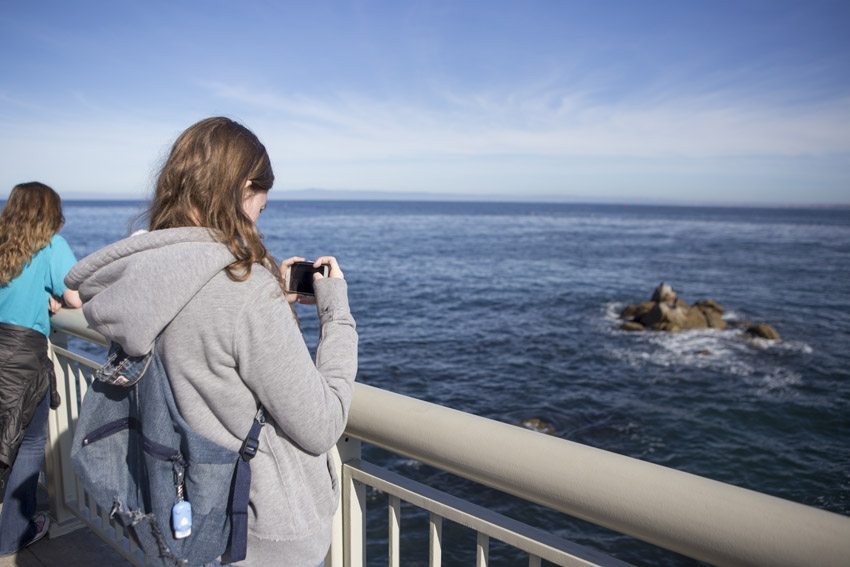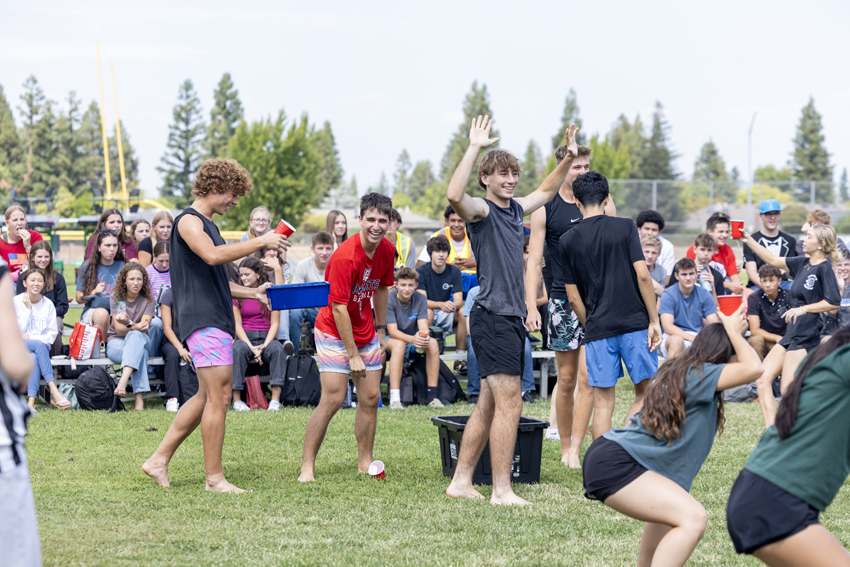Nathan Case’s zoology class studies ocean biodiversity, Pacific marine ecosystem

In order to assist zoology students in understanding California’s marine ecosystem and the ocean’s biodiversity, teacher Nathan Case takes his class to Monterey Bay Aquarium, Nov. 21.
In the aquarium, students will have an opportunity to see some of the animals they study class and study them. For example, students will observe starfish and their eating habits along with some fierce marine life like sharks, according to Case.
“The purpose of us going to Monterey is for students to get hands-on work in the aquarium and do some interactive activities,” Case said. “They will do hands-on lab activity. And students will do instructions about some different biodiversity in the ocean ecosystem.”
As many of the animals that the class studies are from the ocean, Case believes it is important for students travel to an aquarium for study.
“The way the starfish feeds is very interesting and we have studied in class,” Case said. “Since we are going through the Phylum Porifera, students will get to see sponges. The next unit we will study is the Phylum of jellyfish, which we will observe the locomotion of these Cnidarians.”
Junior Natalie Arndt looks forward to the field trip as she studies marine life in her zoology class. Enjoying the study of sharks, Arndt awaits the say’s activities.
“I’m most excited for the field trip that we get to leave Fresno with our friends and classmates,” Arndt said. “I think we are gonna see the animals outside the textbook. I think my favorite animal is probably a shark. I don’t know if they have any in the aquarium, but I really like to look at sharks.”

The aquarium offers opportunities for students to study sea life in Monterey free of charge. Students will have a free trip to the aquarium to study and participate in classes.
“They are doing this to give us more knowledge and to help school and class to connect to real-life so it is free,” Case said. “It is really cool for zoology students to see what is going on in class and see how that is showing up in real life.”
Due to pollution and overfishing, the aquarium strives to advertise ocean protection. Students engage in activities, collect data and determine future events concerning pollution compared to what has already happened.
The Reef Check Foundation, founded in 1996, helps to preserve the oceans and reefs critical to our survival. Case encourages his zoology students to participate in a Reef Check to study the California marine system while at the aquarium. During the activities, students will be exposed to methods of ocean conservation and ways they can contribute to preserving ocean cleanliness.
For more articles, COLUMN: Chinese, American education compared, challenges recognized and Custodians: More than a clean-up crew.
Luke Wu can be reached via email.




